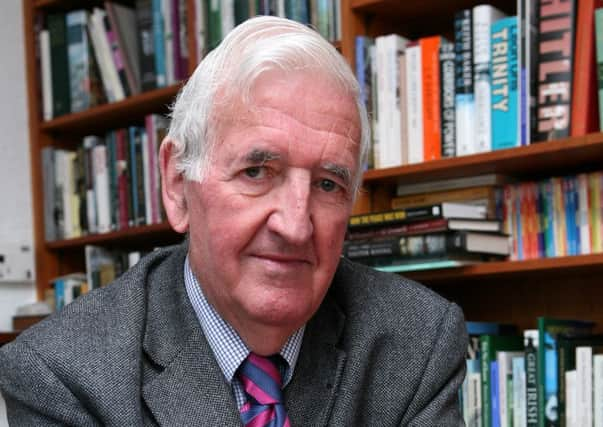Belfast Blitz: One bomb landed in a toilet, another bore a joke from Nazis


Because of the fatuous confidence of the authorities that it was too remote to be in serious danger of air attack, Belfast was left without any adequate protection from the Luftwaffe.
On my 10th birthday, 15 April 1941, we had taken advantage of the Easter holiday to spend an afternoon by the sea, at Ballyhome, near Bangor.
Advertisement
Hide AdAdvertisement
Hide AdThat night we heard the gut-wrenching sound of the sirens followed by the distinctive uneven engine noise of the Germans bombers, what my father’s wartime barber, with unintended malapropistic accuracy, was to describe as the “sin-eye-ster noise of them German bombers hoovering over the city” (for indeed the engine note rather resembled the sound of some malign celestial vacuum cleaner).
Mother and I crouched in a cubby-hole under the stairs while my father was active outside with his tin helmet and stirrup pump, the rudimentary firefighting equipment supplied to air raid wardens.
The occupants of the detached house next door had gone away but left the key.
This was fortunate, because my father was able to gain entry to the house when an incendiary bomb penetrated the roof and fell into the bathroom.
Advertisement
Hide AdAdvertisement
Hide AdIt had, by a chance in a million, landed plumb in the middle of the toilet bowl, in which it was burning merrily as my father arrived.
I wish I cold say that he simply pulled the chain and extinguished it, but alas the more conventional technology of the stirrup pump had to be brought into play.
It was in the garden on the other side that my father found in the morning the tail fin of a burnt-out incendiary on which some Luftwaffe humorist with an uncertain command of English spelling had painted the legend: “Wishes you a happy bomb”.
Often during that night we heard feet running past the house, heading for the railway embankments and semi-open country beyond. There was little reason to suppose that the risk would be reduced by staying out in the open on the fringes of the city, but many people seemed to respond to some primitive instinct to head for open spaces.
Advertisement
Hide AdAdvertisement
Hide AdAs the raid ended, my father, as I have already recorded, took me into the garden, where I was at once exhilarated and appalled to see the glow of a city ablaze.
The casualties had been extremely heavy with hundreds of dead.
Advertisement
Hide AdAdvertisement
Hide Ad